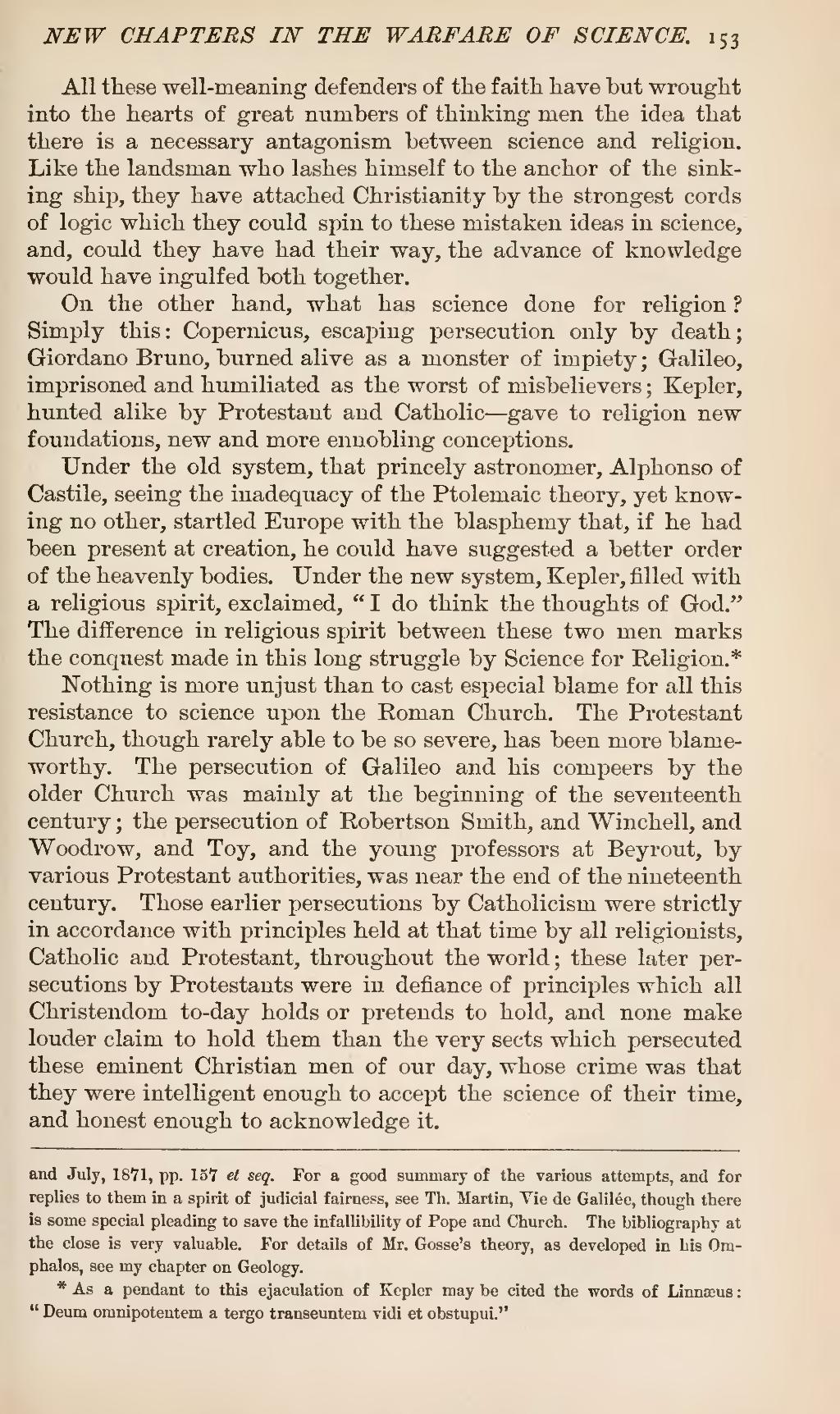All these well-meaning defenders of the faith have but wrought into the hearts of great numbers of thinking men the idea that there is a necessary antagonism between science and religion. Like the landsman who lashes himself to the anchor of the sinking ship, they have attached Christianity by the strongest cords of logic which they could spin to these mistaken ideas in science, and, could they have had their way, the advance of knowledge would have ingulfed both together.
On the other hand, what has science done for religion? Simply this: Copernicus, escaping persecution only by death; Giordano Bruno, burned alive as a monster of impiety; Galileo, imprisoned and humiliated as the worst of misbelievers; Kepler, hunted alike by Protestant and Catholic—gave to religion new foundations, new and more ennobling conceptions.
Under the old system, that princely astronomer, Alphonso of Castile, seeing the inadequacy of the Ptolemaic theory, yet knowing no other, startled Europe with the blasphemy that, if he had been present at creation, he could have suggested a better order of the heavenly bodies. Under the new system, Kepler, filled with a religious spirit, exclaimed, "I do think the thoughts of God." The difference in religious spirit between these two men marks the conquest made in this long struggle by Science for Religion.[1]
Nothing is more unjust than to cast especial blame for all this resistance to science upon the Roman Church. The Protestant Church, though rarely able to be so severe, has been more blameworthy. The persecution of Galileo and his compeers by the older Church was mainly at the beginning of the seventeenth century; the persecution of Robertson Smith, and Winchell, and Woodrow, and Toy, and the young professors at Beyrout, by various Protestant authorities, was near the end of the nineteenth century. Those earlier persecutions by Catholicism were strictly in accordance with principles held at that time by all religionists, Catholic and Protestant, throughout the world; these later persecutions by Protestants were in defiance of principles which all Christendom to-day holds or pretends to hold, and none make louder claim to hold them than the very sects which persecuted these eminent Christian men of our day, whose crime was that they were intelligent enough to accept the science of their time, and honest enough to acknowledge it.
- ↑ As a pendant to this ejaculation of Kepler may be cited the words of Linnaeus: "Deum omnipotentem a tergo transeuntem vidi et obstupui."
and July, 1871, pp. 157 et seq. For a good summary of the various attempts, and for replies to them in a spirit of judicial fairness, see Th. Martin, Vie de Galilee, though there is some special pleading to save the infallibility of Pope and Church. The bibliography at the close is very valuable. For details of Mr. Gosse's theory, as developed in his Omphalos, see my chapter on Geology.

